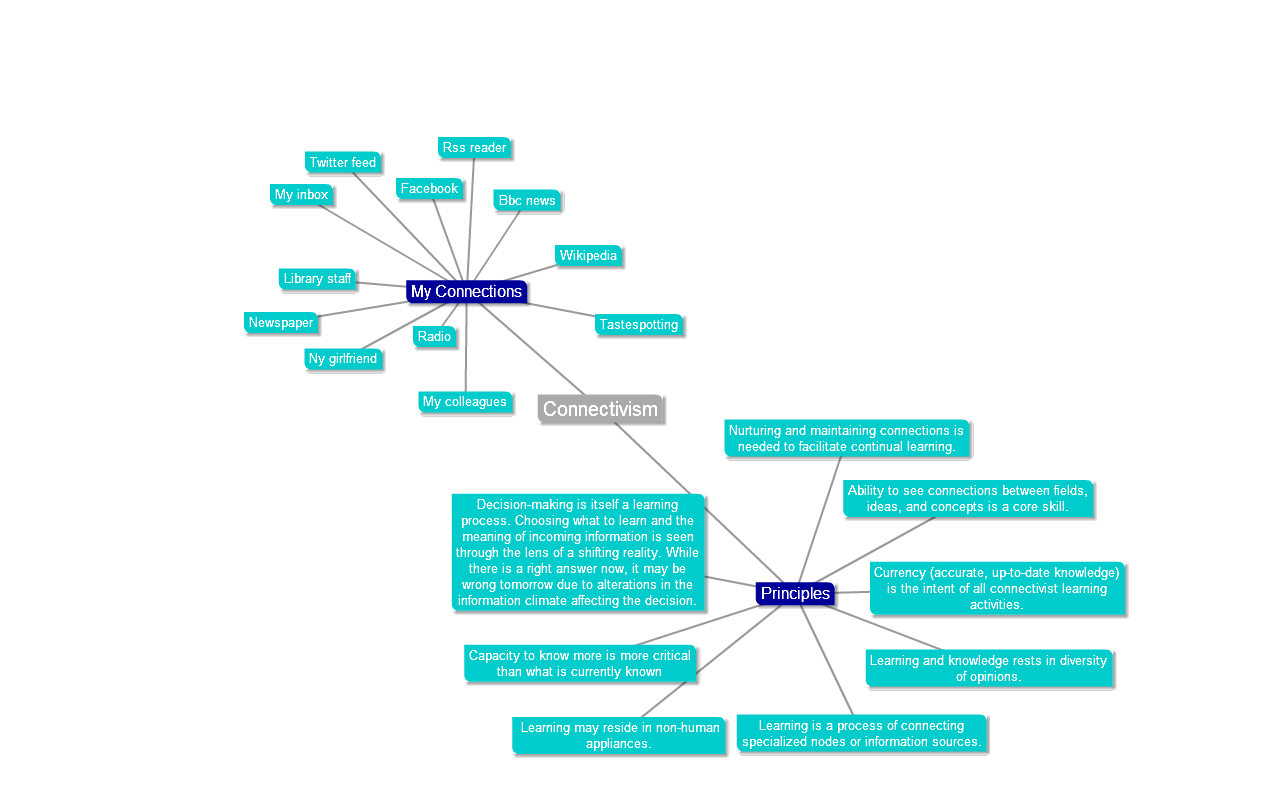Week two on the Connectivism and Connected Knowledge course. This week the focus is on network analysis. What I am interested in is our personal learning network in regards to connectivism. How do we form knowledge through the various people, resources, and organizations we connect to on a daily basis? A complex network analysis of a person could be quite an interesting thing, but where to begin? Does Facebook offer this service?
One of the key distinctions made by Stephen Downes this week was the juxtaposition of learning theory-how people learn, and teaching theory-pedagogy or teaching strategy. My professor did quite a nice job of distinguishing these in our last module. She was speaking to us (pedagogy at this time) about instructional design, engaging our minds with the new topics we needed to connect to. She stopped and observed what some of the students in the class were doing, one was podcasting and listening intently, one was creating a diagram, one was taking notes, and one listening carefully. Learning theory, or strategy is up to the learner. By creating podcasts and notes, the learner is externalizing what they understand and creating new nodes or tools (Vygotksy) to refer to later.
I regularly connect to a number of various nodes each and every day. To my radio that wakes me in the morning, my girlfriend, the newspaper, my colleagues, library staff, my inbox, twitter feed, rss reader, facebook, bbc news, wikipedia, tastespotting ;). In fact it seems I connect more so to electronic nodes than to real people, of course there are real people creating those nodes. Have you ever met someone new that wowed you completely and it changed your day, the way you think? I have, and I believe that is what connnectivism embodies, the ability for your personal network to enhance your sense of knowing.
What do I mean by sense of knowing? That takes us back to the definition of knowledge. Are some people smart and some people not so smart? I believe not. Being aware within a network makes one intelligent. We might all agree that George Siemens is quite an intelligent man, after all he is running this course and we are all taking it. But what if you put George in the middle of the Kalahari desert? What happens to all of the intelligence that he has been accumulating over his life? Therefore knowledge is situated and local networks support people in making intelligent decisions.
For a good account of this read Malcolm Gladwell‘s book Outliers which gives a number of examples of extraordinary people being part of extraordinary networks at the right time.
A key resource, the Daily (a daily newletter by email), which points us to the latest blogs and activities is down because one of the admin servers is not working. Thus, the students of this course are slightly disadvantaged with this node missing from our networks. We are still able to push on using the other nodes available to us such as the wiki, moodle site, and the twitter feeds.
And what about George in the Kalahari? I think he might just be able to make it, with a little help from his friends.

